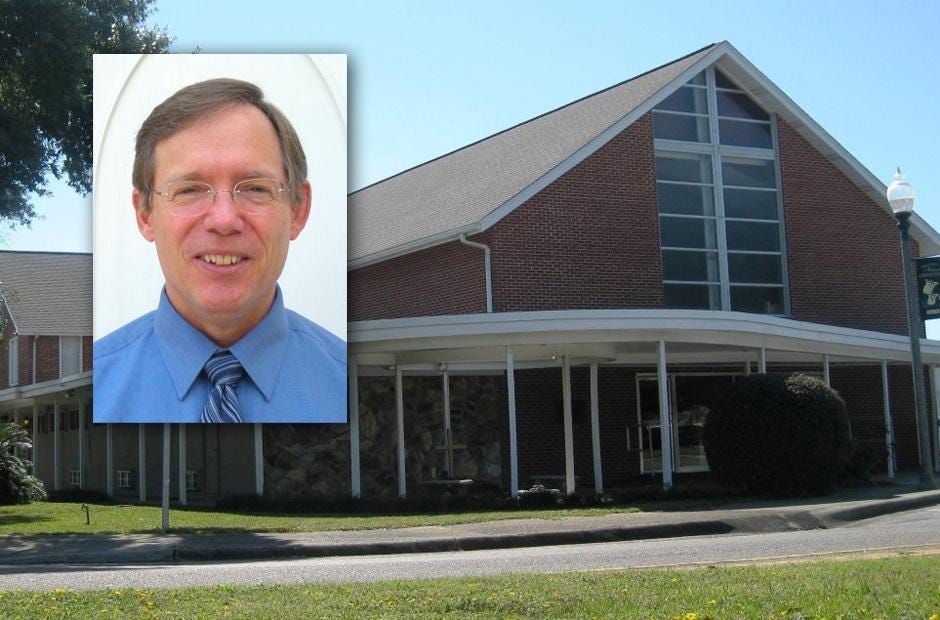![The Rev. Mark Broadhead is pastor at Laurel Hill Presbyterian Church and First Presbyterian Church of Crestview. [FILE PHOTOS | NEWS BULLETIN]](http://127.0.0.1/wordpress/wp-content/uploads/2022/01/ghows-DA-8e9838e7-9f2d-3379-e053-0100007f60cb-5364aef2.jpeg)
Last weekend was the 50th anniversary of humanity’s first step on the moon.
It was a historic event. As Neil Armstrong said, “That’s one small step for (a) man, one giant leap for mankind.” Apollo 11 made history. But so did Apollo 8.
On Christmas Eve 1968, astronauts Frank Borman, Jim Lovell and Bill Anders, the crew of Apollo 8, were orbiting the moon. On the fourth orbit, they looked up and saw something they hadn’t expected to see because they were preoccupied with photographing the cratered lunar surface below. It took their breath away.
What they saw was Earth rising. In awe, they took the historic photo of it.
Frank Borman, the expedition’s commander, later described it this way: “It was the most beautiful, heart-catching sight of my life … It was the only thing in space that had any color to it. Everything else was either black or white, but not the earth.”
Jim Lovell echoed those sentiments, and then added: “It was the most beautiful thing there was to see in all the heavens. People down here don’t realize what they have.”
To look at Earth from afar — it is so small compared to the rest of God’s magnificent universe; it is so inviting, so beautiful.
So why do people fight over territory? Why do people fight over natural resources? Some will say it is their God–given right to exploit natural resources for their own gain, to grab as much territory as possible.
I wholeheartedly disagree. This is not a God–given right, but a practice adopted by generations of humanity fallen from God’s grace because they chose to ignore God’s intentions for life. We have simply convinced ourselves this is the way it is supposed to be.
Let me encourage a change of perspective.
For a moment, imagine yourself out in space looking at this tiny blue marble we call Earth. It’s beautiful! God absolutely knew what he was doing when he created it. Land, sea, blue sky, clouds, living creatures.
Humanity was created to live on Earth, to “subdue” – govern, tame – it, not conquer it, not own it, but to care for it and everything in it.
Why? Because, “The earth is the Lord’s and all that is in it, the world, and those who live in it; for he has founded it on the seas, and established it on the rivers.” (Psalm 24:1-2, New Revised Standard Version)
I wonder what will happen if and when we realize this, change our ways, and realize we live in God’s world.
The Rev. Mark Broadhead is pastor at Laurel Hill Presbyterian Church and First Presbyterian Church of Crestview.

This article originally appeared on Crestview News Bulletin: The earth belongs to God
